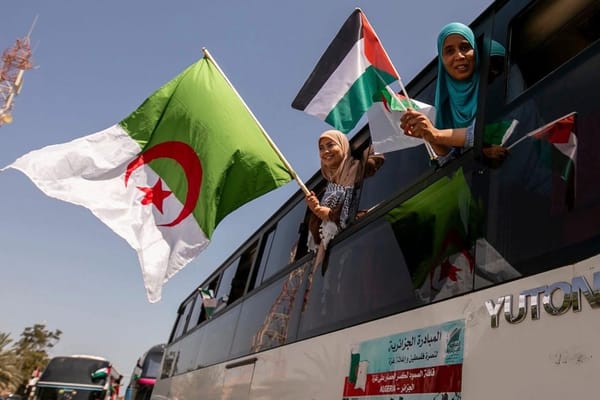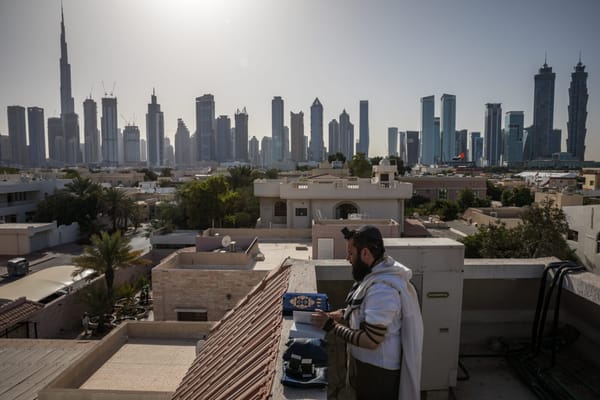At least 60 people were killed in the South Waziristan region of Pakistan on June 23 by a US drone attack. The dead were among those attending a funeral for a suspected Taliban commander who, along with six other people, had been killed by a drone earlier that day. Since 2006, the US has engaged in nearly 100 aerial drone attacks on Pakistani territory, which have resulted in scores of deaths, many of them innocent civilians. While aerial attacks in Pakistan were instituted by the Bush administration, President Barack Obama has accelerated their use as a feature of his administration’s military policy toward Afghanistan and Pakistan. Even as the United Nations special investigator on extrajudicial, summary or arbitrary executions, Philip Alston, issued a strong condemnation of the drone attacks in June, CIA Director Leon Panetta reiterated the US intention to continue targeting sites in Pakistan.
Across Pakistan’s political spectrum, the public regards US drone attacks as a violation of the nation’s sovereignty, and their acceleration feeds perceptions that the US is a national security threat to Pakistan. While former President Pervez Musharraf seemed to tolerate the attacks as the price of alliance, President Asif Ali Zardari has publicly appealed to the US to desist. However, some US officials have countered that the attacks have tacit Pakistani support. Senator Diane Feinstein alleged in February 2009 that the drones were actually being flown from bases in Pakistan. In May, it was reported that the US was sharing aerial intelligence but Pakistan’s request for joint control of missions had been rebuffed.
Since April, the Pakistani army has been waging a military offensive of its own against the Pakistani Taliban in the Swat region, the North West Frontier Province and the Federally Administered Tribal Areas. According to army sources, this offensive has cost 1,500 “militant lives,” including over four dozen people killed in Waziristan on June 20. There has been a recent shifting of Pakistan’s forces from the border with India to the northwestern regions to wage hot war against the Taliban. In addition to the toll of civilian casualties and injuries, the Pakistani offensive has created a massive upheaval, with internally displaced civilians from the tribal regions numbering in the tens of thousands according to the UN. Whether from drone attacks, militant bombings or the Pakistani army’s offensive, the residents of the tribal areas now bear the brunt of policies that seek political solutions through the barrel of a gun.
For the Pakistani government, the death toll and displacement effects of the US drone attacks and the military offensive in the tribal areas have been destabilizing. But there is little evidence of public sympathy for the insurgents being targeted. Incidents like the June 10 bombing of the Pearl Continental Hotel in Peshawar, which left 18 dead and over 55 injured, have led to widespread public revulsion at the tactics of militants affiliated with the Taliban, whose bombings across Pakistan’s cities since the beginning of the army’s offensive have boosted public support for the government’s attempts to crack down on them.
Obama campaigned on the promise to shift US military attentions from Iraq -- with a phased troop withdrawal—to Afghanistan, and to prioritize the elimination of al-Qaeda and defeat the resurgent Taliban. In March, when Obama gave his major policy speech unveiling the new “Afghanistan-Pakistan” -- or Af-Pak -- strategy, the key points were an increase of US forces in Afghanistan by 21,000 troops, growing the Afghan army, greater financial assistance and a civilian “surge” to assist Afghanistan with economic development. The military priorities -- or, rather the political priorities pursued militarily -- include decapitating al-Qaeda’s leadership, defeating the hard-line Taliban and accommodating the more moderate elements. The Obama administration has stressed that no Afghanistan policy could succeed without taking Pakistan into account, as a potential ally as well as a safe haven where Afghan Taliban militants could escape coalition forces, and from which they could launch attacks. Another key Af-Pak goal is to ensure the security of Pakistan’s nuclear arsenal which presents a menacing threat if there is greater instability or a coup by Taliban-friendly officers.
Five decades of US alliance with Pakistan and generous if one-dimensional support for every undemocratic military regime have fostered a sense that Washington calls the shots and that Pakistan’s leaders -- military and civilian -- look there for succor and direction. Not only has this military-first strategy been destabilizing; it has fueled corruption that exacerbates Pakistan’s already cavernous socioeconomic inequities.
Evidence to date has been mixed about the US commitment to effective, democratic governance in Pakistan as part of a broader regional strategy. Obama did promise a significant increase in non-military aid to Pakistan as part of the new policy, including an emphasis on job-generating economic development projects, such as the creation of “opportunity zones” in the border regions. The substance of this promise is the administration’s support for the Kerry-Lugar bill, which would triple American aid to Pakistan to a commitment of $7.5 billion over the next five years. Titled the “Enhanced Partnership with Pakistan Act of 2009,” the bill—which was unanimously approved by the Senate Foreign Relations Committee on June 17 -- puts a focus on economic development in exchange for verified Pakistani assistance in “combating terrorism and violent radicalism, both inside Pakistan and elsewhere.” While progress on the counter-terrorism front is a condition of aid, according to the bill the purpose of the non-military aid is to support a “democratic, moderate, modernizing Pakistan.” But tripling aid to Pakistan without clear lines of supervision and accountability is no likelier to enhance democracy and moderation than any of the vast sums that have already been dispersed since 2001.
The proposed increase in aid and emphasis on counter-terrorism, when combined with the ongoing drone attacks and demand for Pakistani crackdown on militants, lends some credence to the view that current US policy is just more of the same: a continuing transactional partnership whereby the allegiance of Pakistani forces to fight against America’s regional adversaries is purchased with little regard for the long-term impact on the civilian population of the region.
Any Af-Pak policy -- particularly one that claims to value the democratic legitimacy of its regional partners -- must have goals that are not wedded to the preservation of any particular administration in Pakistan. Without pursuing strategies that generate support of a broad domestic constituency, the Obama administration will be as dependent on Zardari’s continued rule as past US reliance on Pakistan’s military generals. Democratization and stability in Pakistan also depend on breaking the army’s hold on the political system.
The current Af-Pak policy, at least as it is operating on the ground, runs the risk of weakening Pakistan internally by fueling a growing insurgency, and regionally, by subordinating Pakistan’s own priorities to American national security interests. Rather than signing onto another iteration of the transactional relationship with Pakistan, the Obama administration would do well to consider the needs of Pakistan’s civilian population as the essence of a sustainable partnership. This would require support for democratic forces and a broader regional strategy that draws India, Pakistan and Afghanistan into a cooperative arrangement. To do so may require a new “new Af-Pak policy” and one with considerably less emphasis on military solutions.
Written by









